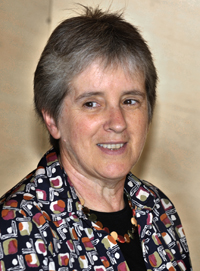Diana Eades
 Expertise:
Expertise:
-
Sociolinguistics - Forensic Linguistics
Qualifications:
-
BA (Hons) Asian Studies, Australian National
University
-
PhD Linguistics, University of Queensland
Dr. Diana
Eades is Adjunct Associate Professor at the University of New England, NSW,
Australia, and Fellow of the Australian
Academy of the Humanities. She has served as President, Vice-President and
Secretary of the International Association of
Forensic Linguists, and as Vice-President of the
Australian Linguistic Society.
Diana Eades is a sociolinguist who has worked on language in
legal contexts since the mid-1980s. In the past decade she has become involved
in linguistic investigations into LADO. After convening a group of Australian
linguists who exposed problems with this practice in Australia, she went on to
convene a group of international scholars, the Language & National Origin Group, who developed the Guidelines for
the Use of Language Analysis in Relation to Questions of National Origin in
Refugee Cases (2004). She is concerned that the newly developing field of
LADO should be based on well-researched principles of linguistics, including
sociolinguistics, and that linguists working in this area adhere to principles
of best practice in the application of scholarly work.
Much of Diana’s other research has focused on Australian
Aboriginal speakers of varieties of English in the criminal justice process. She
has provided expert evidence to courts and tribunals, and her work is cited as
the authority on Aboriginal English in the legal system in government reports,
judicial decisions, and legal publications. For more than two decades she has
been providing workshops about intercultural communication with Aboriginal
people, and communication practices within the legal process, to lawyers,
magistrates and judges. In 1992 she published a handbook for lawyers titled
Aboriginal English and the Law (Queensland Law Society). In addition to
many journal articles and book chapters, her academic work includes the books
Courtroom Talk and Neocolonial Control (2008, Mouton de Gruyter) and
Sociolinguistics and the Legal Process (2010, Multilingual Matters).
Diana is co-editor of The International Journal of Speech
Language and the Law and has been President, Vice-President and Secretary
of the International Association of Forensic Linguists. She is on the Editorial
Boards of Applied Linguistics and Multilingua.
Email:
Diana.Eades
Please add: @une.edu.au
Related Publications
2010. Guidelines from linguists for LADO. In
Language and Origin: The Role of Language in European Asylum Procedures: A
Linguistic and Legal Survey, edited by Karin Zwaan, Pieter Muysken and
Maaike Verrips. Nijmegen: Wolf Legal Publishers, 35-42.
-
explains the origins and motivation,
development, authorship and content of the Guidelines,
as well as their scholarly and judicial status
2010. Language analysis and asylum cases. In
Routledge Handbook of Forensic Linguistics, edited by Malcolm Coulthard and
Alison Johnson. London: Routledge, 411-422.
2009. Testing the claims of asylum seekers: The
role of language analysis. Language Assessment Quarterly 6(1): 30-40.
2007. Review of The Asylum Speaker: Language
in the Belgian Asylum Procedure by Katrijn Maryns. Manchester, UK: St
Jerome Press. The International Journal of Speech Language and the Law
14(2): 295-300.
2005. Applied linguistics and language analysis
in asylum seeker cases. Applied Linguistics 26(4): 503-526.
2004. Diana Eades and Jacques Arends. Using language analysis
in the determination of national origin of asylum seekers: An introduction.
The International Journal of Speech Language and the Law 11(2): 179-199.
2004. Diana Eades and Jacques Arends (eds.). Special section:
Language analysis and determination of nationality. The International
Journal of Speech Language and the Law 11(2).
-
the first collection of papers on the topic,
plus the Guidelines. Papers by Eades and Arends (see
above), Singler (Liberian applicants in Switzerland), Maryns
(Belgium) and Corcoran (case study of West African applicant in
the Netherlands).
2004. (coauthor) Guidelines for the use of language analysis
in relation to questions of national origin in refugee cases. The
International Journal of Speech, Language and the Law: Forensic Linguistics,
11(2): 261-266. Available at
http://www.unhcr.org/refworld/
2003. Diana Eades, Helen Fraser, Jeff Siegel, Tim McNamara and
Brett Baker. Linguistic identification in the determination of nationality:
A preliminary report. Language Policy 2(2): 179-199.